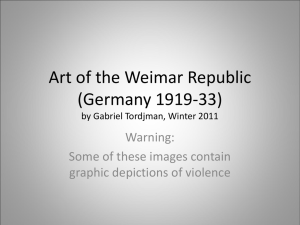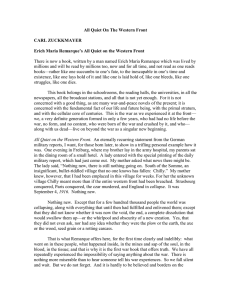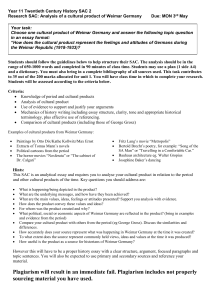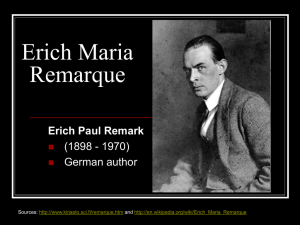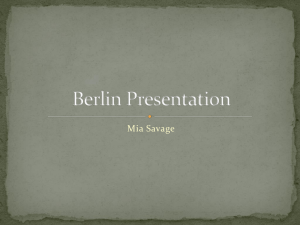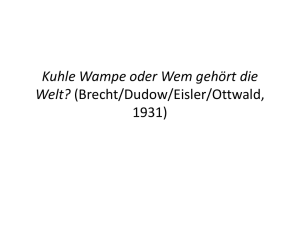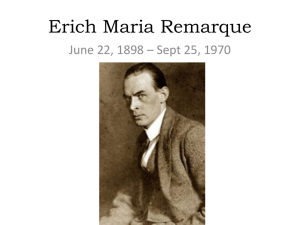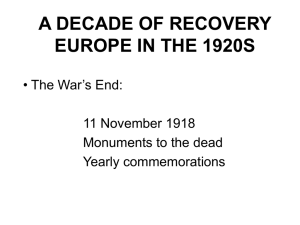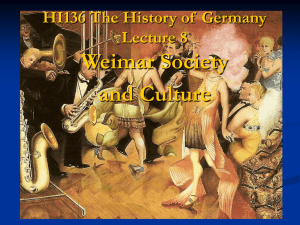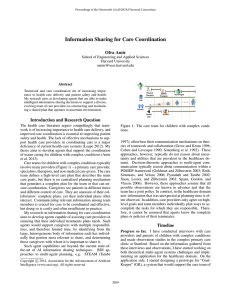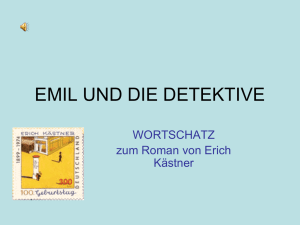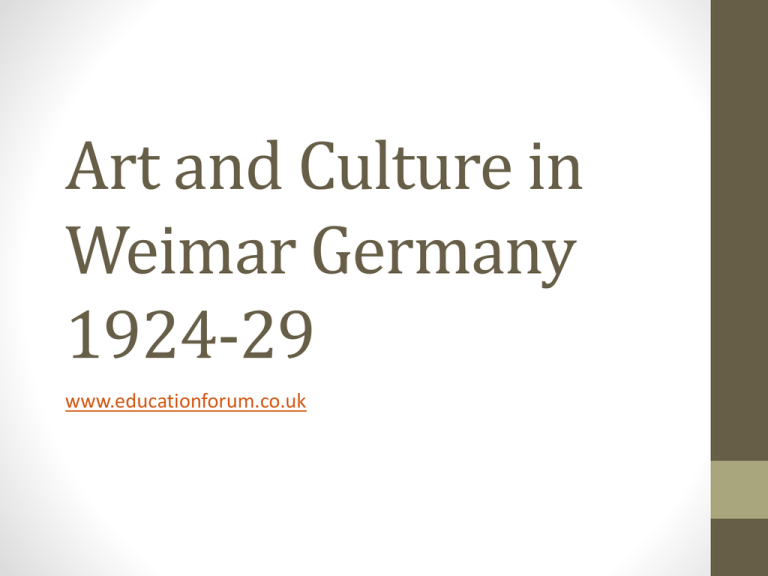
Art and Culture in
Weimar Germany
1924-29
www.educationforum.co.uk
Cultural Revival
• The Stresemann years also saw a big recovery in cultural and
artistic life
• Artists, architects and writers experimented with new styles
and new ideas
• There was an atmosphere of free expression and free thinking
– Berlin overtook Paris as the European centre for art and
culture
• Not everyone like the new styles of art
Art
• Artists such as George Grosz used his art to criticise both
society and politicians. Grosz art was often shocking to
respectable society – sometime very political and often very
sexual
• A new modern art movement called the Dada school also
emerged in this period headed by Hannah Hoch
Hitler in Hell
Literature
• Berlin also became the centre for new plays, films and operas
• Bertolt Brecht the communist playwright became very popular
• Cinema took off with films often expressing anti war and anti
military ideas
• Authors like Erich Remarque wrote any war books like ‘All
Quiet on the Western Front’ which sold half a million copies
• There were around 120 newspapers and over 40 theatres
flourishing in an atmosphere of free expression
Opposition
• The Nazis hated the art and culture of Weimar calling it
‘decadent’ and ‘degenerate’ and definitely unpatriotic
• Some ordinary people were worried about the apparent
decline of moral standards in Berlin where nightclubs and the
sex industry flourished
Research Task
• Choose two the following and on your table produce a display
of their life story and contribution to art and culture:
1. George Grosz
2. Hannah Hoech
3. Walter Gropius
4. Bertolt Brecht
5. Hermann Hesse
6. Erich Remarque
Display on the walls around your table

